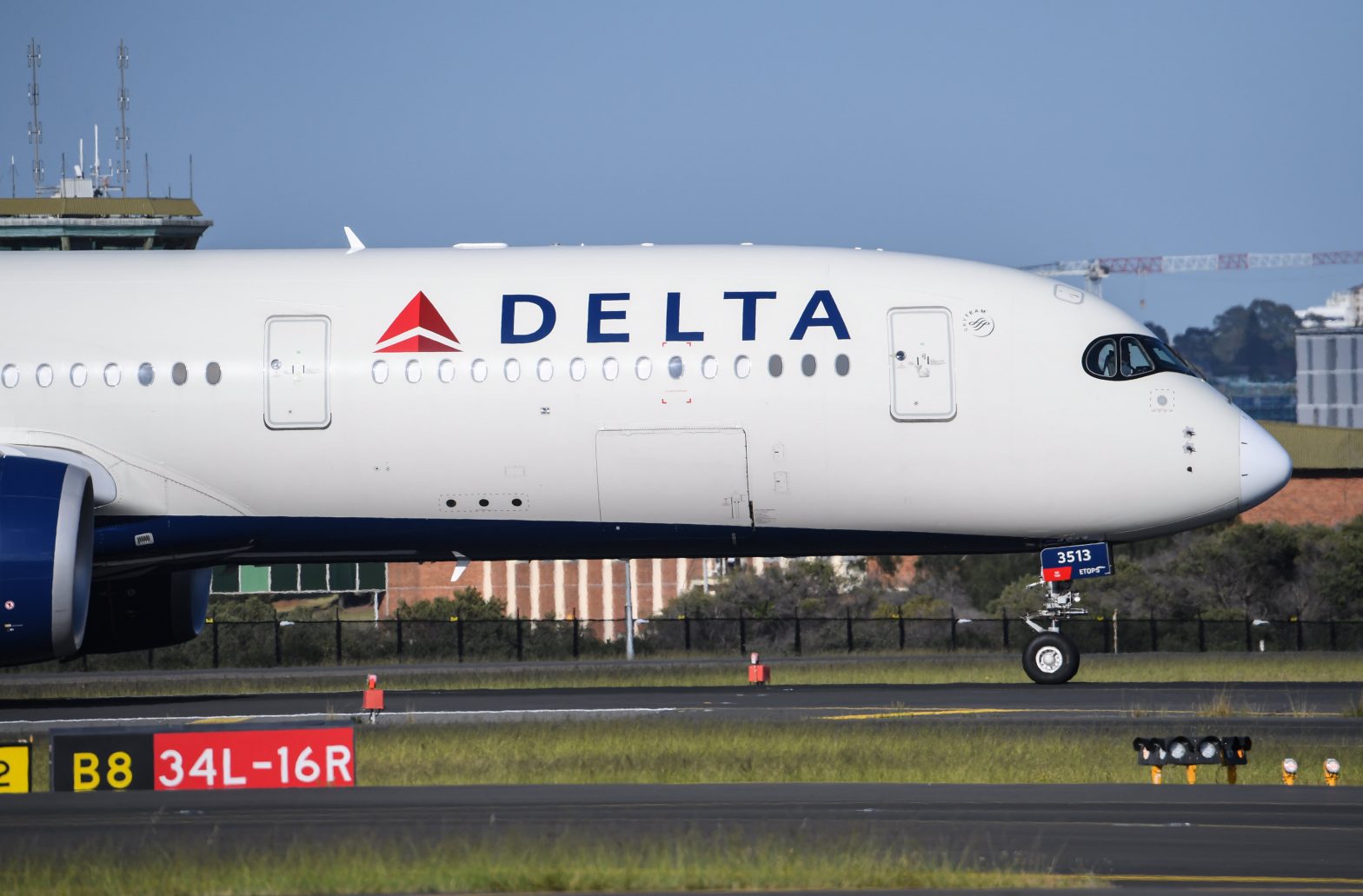A Delta airlines aircraft landing from Los Angeles at Kingsford Smith International airport on October 31, 2021 in Sydney, Australia.
James D. Morgan | Getty Images
Delta Air Lines said Thursday that the surge of the omicron variant of Covid-19 will drive it to a first-quarter loss, but that it still expects to turn a profit this year on stronger travel demand.
In the fourth-quarter, Delta posted its highest revenue since late 2019, thanks in part to strong holiday bookings and more business travel.
Sales of $9.47 billion beat analysts’ expectations for $9.21 billion. The company is still yet to fully recover from the Covid-19 crisis. Revenue was down 17% from $11.44 billion during the last three months of 2019, just before the coronavirus pandemic began.
Delta’s shares were up more than 2% in premarket trading after the company reported results.
CEO Ed Bastian said omicron is expected to delay the rebound in travel demand by 60 days.
President Glen Hauenstein cautioned: “The recent rise in COVID cases associated with the omicron variant is expected to impact the pace of demand recovery early in the quarter, with recovery momentum resuming from President’s Day weekend forward.”
It set aside $108 million in employee profit sharing, its first in nearly two years.
“Amid the continuing challenges, including one of the most difficult holiday environments we’ve ever encountered, you continue to rise above and provide unmatched service to our customers,” Bastian said in a note to employees.
Here’s how Delta performed compared with what analysts expected, according to average estimates compiled by Refinitiv:
- Adjusted earnings per share: 22 cents versus 14 cents expected.
- Revenue: $9.47 billion versus $9.21 billion expected.
Delta posted a net loss of $408 million in the fourth quarter as fuel and other costs rose, partly driven by disruptions from omicron’s spread. Adjusting for one-time items, Delta reported per-share earnings of 22 cents, ahead of 14 cents Wall Street expected.
For the full year, Delta reported $280 million profit, its first in two years, thanks to $4.5 billion in federal aid for airline labor costs during the crisis. In 2020, after travel demand plunged, Delta its biggest-ever loss: $12.4 billion.
Delta is the first U.S. airline to report fourth-quarter results and to give a detailed forecast of the variant’s impact on its business. Omicron’s rapid spread has hit industries from theater to restaurants to retailers and grocery stores.
Airlines, including Delta, have cancelled thousands of flights since Christmas Eve as a spike in Covid infections among crews left them short-staffed.
Delta said that it’s operation has stabilized and that omicron caused it to cancel only 1% of its flights over the past week.
But omicron will keep a lid on bookings for the near-term, the airline said.
“Despite expectations for a loss in the March quarter, we remain positioned to generate a healthy profit in the June, September and December quarters, resulting in a meaningful profit in 2022,” Delta CFO Dan Janki said in the earnings release.
Investors have largely shrugged off omicron’s impact on carriers. Delta’s shares are up 3.9% this year through Wednesday, while United and American shares are up 6.3% and 3%, respectively. The S&P 500, in comparison is down 0.84%.
Delta expects first-quarter revenue to come in 24% to 28% below 2019 levels on capacity of 15% to 17% below what it flew three years earlier. It forecast a roughly 15% jump in costs from 2019, excluding fuel.
Airlines have been comparing results to 2019 to show how far the business has recovered from pre-pandemic levels.
Among Delta and other airlines’ challenges this year are ramping up hiring to cater to travel demand, a challenge in a tight labor market.
Delta executives will detail results and their outlook for 2022 on a 10 a.m. ET call.
United Airlines is scheduled to report results after the market closes on Wednesday followed by American Airlines the next morning.
